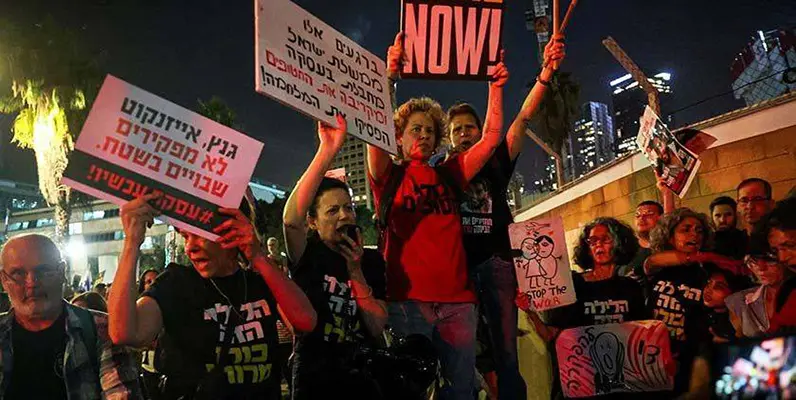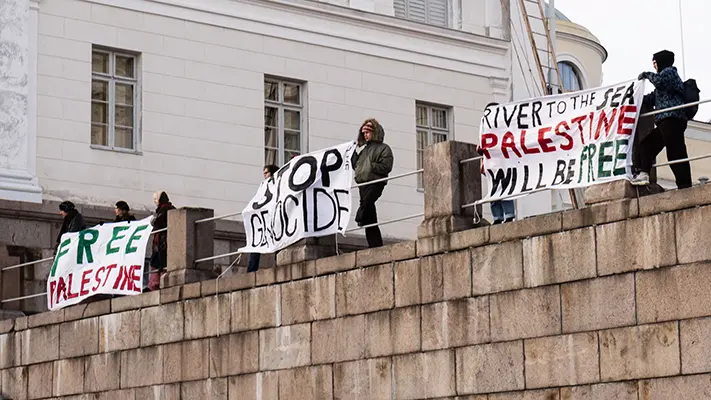New Hope in Israel-Hamas Ceasefire Negotiations
The pendulum of peace in the Middle East may be swinging towards a positive direction. The long-standing conflict between Israel and Hamas seems to be edging closer to a potential resolution. The recent developments in the negotiations suggest a renewed sense of optimism among the negotiating parties. However, the road to peace is fraught with challenges and the ultimate outcome remains uncertain.
The Window of Opportunity
The Biden administration and its national security team see a fleeting opportunity to finally forge an agreement that could halt the war in Gaza, at least temporarily, and possibly end it for good. The administration is also facing pressure from college campus protests to reconsider its unwavering support for Israel in its fight against Hamas.
“Hamas has before it a proposal that is extraordinarily generous on the part of Israel,”
– Mr. Blinken
There are several converging factors that have rekindled the administration’s hopes of breaking the impasse in the coming weeks. They aim to leverage the successful defense of Israel from an Iranian attack, the mounting public pressure in Israel to free the hostages, and the eagerness of Saudi Arabia for a new diplomatic and security initiative.

The Ceasefire Proposal
According to recent reports, Israel has reduced the number of hostages that been demanded from Hamas in exchange for a temporary cessation of hostilities. This adjustment in Israel’s stance has stoked expectations that both sides might be inching towards an agreement. A new round of ceasefire negotiations could usher as soon as the following week.
Previously, the negotiations have been at a standstill with Israel insisting on the release of at least 40 hostages. But now, Israeli officials indicate they are prepared to settle for only 33, partly owing to their belief that some of the 40 may have died in captivity.
“Rafah can wait, they cannot”
– protest poster in Tel Aviv
The proposal also includes a 40-day ceasefire and the potential release of thousands of Palestinian prisoners. The U.S. Secretary of State, Antony Blinken, has praised Israel’s offer as an “extraordinarily generous” gesture and urged Hamas to accept it.
The Response from Hamas
In response, Hamas acknowledged receiving the proposal and is considering it. The group has not changed its maximalist position in the negotiations since December 2023. It had sent Israel a reiteration of its unchanging, maximalist demands in April after the previous round of negotiations.
Hamas is now contemplating the Egyptian-proposed ceasefire deal, which would require the group to release 20 to 33 Israeli hostages who are still alive. Western media outlets reported that the proposal involves several new Israeli concessions. If Hamas agrees to the terms, an Israeli delegation is expected to travel to Cairo to continue talks.

The Road Ahead
Despite the progress, the window for peace may be short-lived. The president’s advisers are pressing for a ceasefire deal before Israel can initiate its threatened assault on Rafah, a southern city in Gaza. Such an operation could result in many civilian casualties, potentially derailing any short-term chances of peace.
However, the optimism of the administration has been dashed before, with numerous instances of promising negotiations ending in a stalemate. Therefore, while the current situation brings some hope, the outcome remains uncertain until an agreement is finally reached.
Conclusion
The path to peace in the Middle East has always been a complex and challenging one. However, the recent developments in the Israel-Hamas ceasefire negotiations offer a glimmer of hope. While challenges remain, the renewed sense of optimism and the potential breakthrough in negotiations could be a significant stride towards lasting peace in the region.
The Biden administration’s efforts in leveraging the current geopolitical scenario to forge a resolution indicate a proactive approach towards the issue. The outcome of these negotiations will undoubtedly have a significant impact on the geopolitical landscape of the Middle East.
It is crucial to continue monitoring these developments closely, as they may signal a turning point in the long-standing Israel-Hamas conflict. Although the road to peace may be fraught with challenges, the journey towards it is a necessary one. As these negotiations unfold, the world watches with bated breath, hoping for a peaceful resolution to this enduring conflict.
We also recommend reading:
130 Days – Results of Negotiations, Hopes Fade. Hamas Negotiators Depart Cairo, Six-Week Truce – Now it’s up to Hamas















Leave a Reply